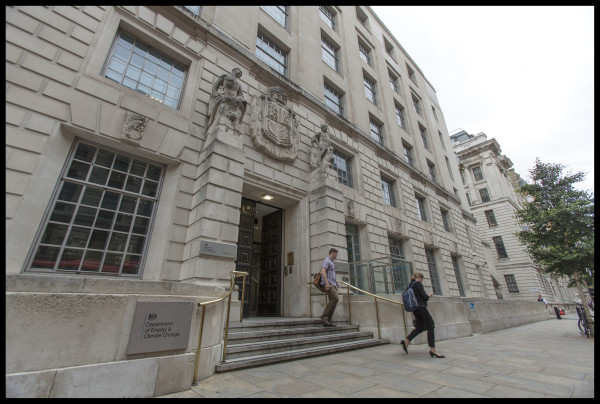

The government will not offer civil servants a self-invested personal pension plan (Sipp) as part of their defined contribution (DC) arrangement, despite calls for the option to be made available.
In its response to last year’s consultation on the matter, the government said respondents had asked that Civil Service Pensions provide a Sipp plan but this was “not under consideration”.
It also confirmed it would appoint Legal & General (L&G) as the sole new provider for the Civil Service DC pension schemes, replacing the three providers previously in place, Partnership, Scottish Widows and Standard Life.
The consultation, issued on 25 September, had asked members about their views on the selection of L&G as well as what they wished to see from the scheme manager and provider during and after the transition.
It received responses from 38 individuals, most of which were scheme members, three trade unions and a pensioners’ group.
The government said in its response out on 9 January: “A small number of respondents asked that Civil Service Pensions provide a self-invested personal pension plan.
“However Cabinet Office can confirm that this is not under consideration.”
It said it considered Sipps to be a specialist product, which was why it would not be offering it.
It also said the consultation had “revealed some misunderstanding amongst members” about the way their DC schemes were set up but members had had no objections to appointing L&G.
“Cabinet Office therefore intends to appoint Legal & General as the new provider for the Civil Service DC Pension schemes,” it stated.
It said the move had not been motivated by any need to make cost savings but by a desire to create better oversight.
“By reducing the number of providers we will be able to focus on the governance of the single provider, which will be of benefit to all parties,” the cabinet office stated.
The consultation documents showed some members were concerned about the outsourcing process to L&G and the cost involved.
One respondent said: “Why should we allow Legal & General and their investors to profit from our pensions when it shouldn't be too difficult to mutually manage things?”
The government stated in response it considered the use of specialist providers better value for money than an in-sourced arrangement.
Others were concerned about limited choice and fees under a single provider scheme.
The government said: “The current model does not provide for competition between our contracted providers.
“The two active providers charge the same annual management charge and comparative performance details are not published by Civil Service Pensions.”
Henry Tapper, founder of auto-enrolment service Pensions PlayPen and director at pensions consultancy First Actuarial, said he was pleased to see the government take a tough stance on these issues.
He said already diminished DC pots should not be stretched further by adding extra complications such as numerous providers or product options as could be accessed via Sipps.
Mr Tapper said: “It pleases me the civil service are being tough in this because there’s a lot of cost that gets borne by everybody in the scheme.
“I don’t think there is a good business case for giving money to Sipps let alone the tripartite arrangement they had in place before.”
Mr Tapper said members would always be given the choice to transfer out and invest their money in Sipps themselves at their own expense.
“In terms of priorities, employers have to put contributions and costs first and ‘frills’ second, he said.
carmen.reichman@ft.com



